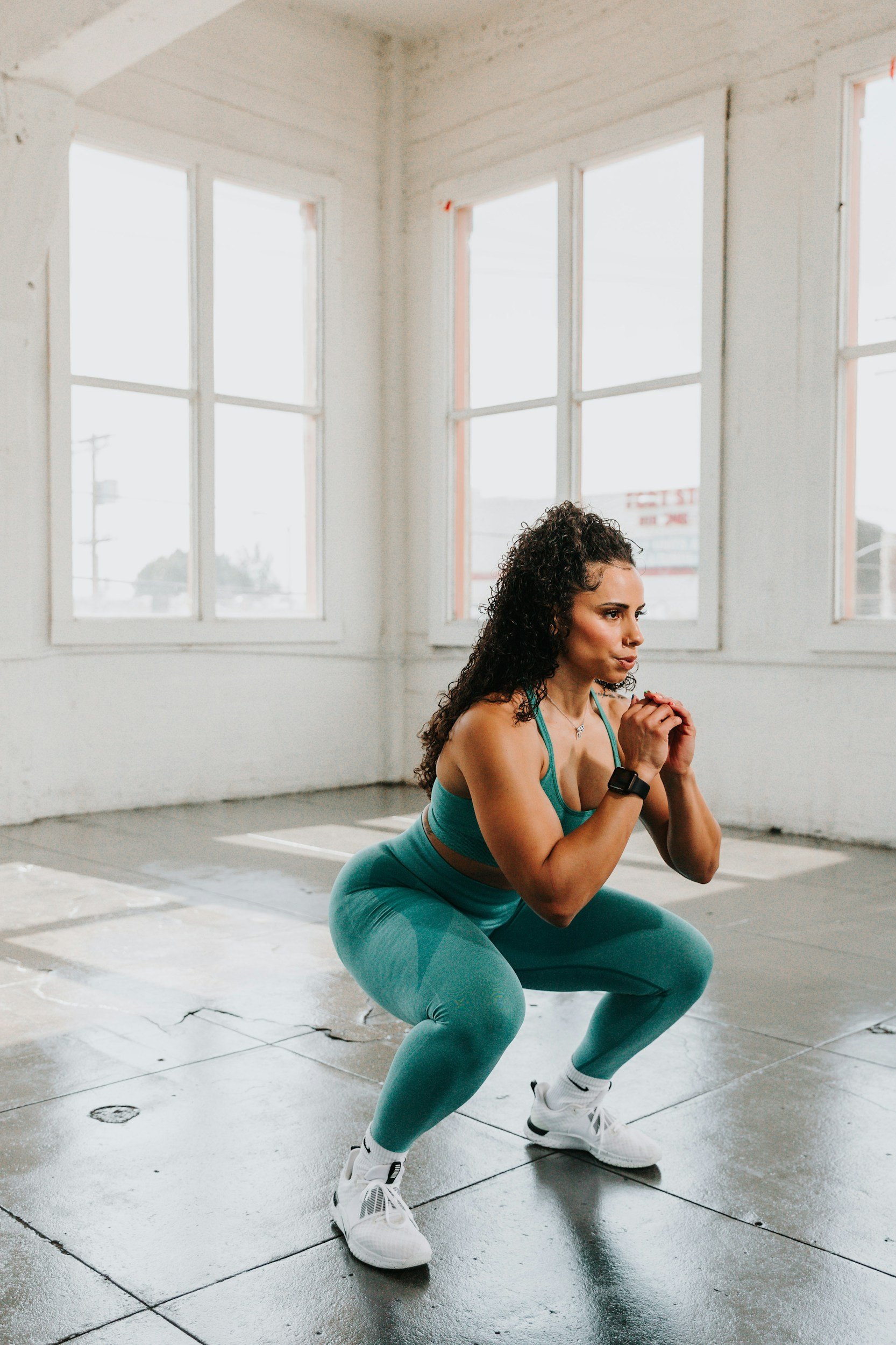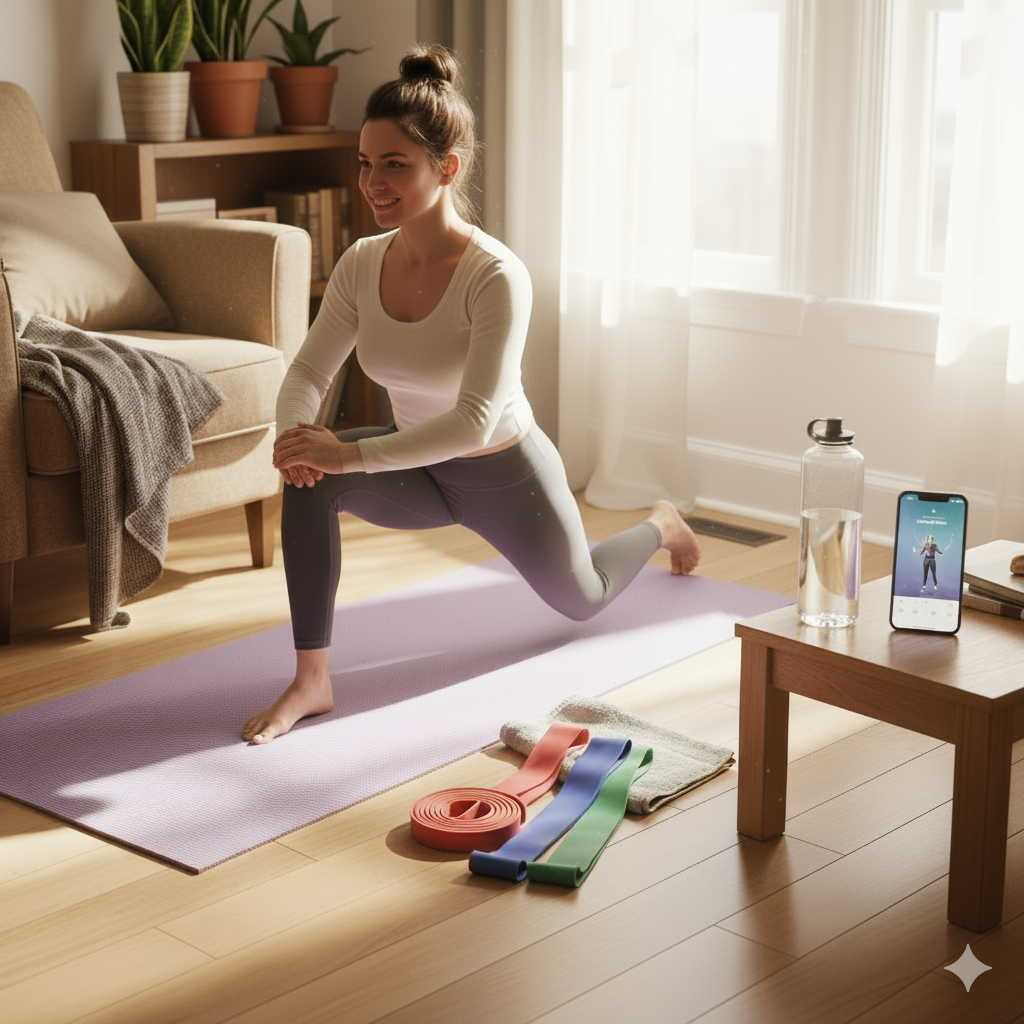How AI Can Help Me Stay Motivated on My Fitness Journey
Introduction: When Motivation Feels Like a Rollercoaster
I’ll be honest: my fitness journey has been anything but smooth. Some weeks I’m on fire — waking up early, drinking water like it’s my full-time job, and feeling like I could run a half-marathon just for fun. Then the next week? Well, let’s just say Netflix, chocolate, and excuses suddenly become my workout buddies.
Does that sound familiar? If so, you’re not alone. Staying motivated on a fitness journey is hard. Life gets busy, energy dips, and sometimes the thought of doing one more squat just feels overwhelming.
That’s why I started experimenting with AI tools and prompts — not to make me some kind of superhuman athlete, but to help me keep moving forward in a gentler, more supportive way. And honestly? It’s been a game-changer. AI can’t lift the weights for me, but it can give me the structure, encouragement, and personalization I was missing.
So let’s talk about how AI can help us stay motivated when the couch looks more inviting than the yoga mat.
Why Motivation Slips Away in the First Place
Before jumping into the “AI magic,” I think it’s important to acknowledge why motivation is so tricky in fitness.
All-or-nothing thinking: We set huge goals (“I’ll work out five times a week forever!”), then feel like failures if we slip once.
Boring routines: Doing the same workout day after day drains excitement.
Comparison culture: Scrolling through Instagram fitness influencers makes us feel like we’re already behind.
Life interruptions: Kids get sick, work deadlines pile up, the weather changes — and suddenly the gym bag stays untouched.
The truth? Motivation isn’t a constant. It comes and goes. What we really need is a system that keeps nudging us back on track when we lose steam. That’s where AI comes in.
1. Personalized Fitness Plans That Actually Fit Your Life
Here’s something I’ve learned: one-size-fits-all workouts rarely work. The routine that fits your friend’s lifestyle might not fit yours — and forcing it usually backfires.
AI-powered fitness apps (like Fitbod, Freeletics, or even using ChatGPT prompts) can create custom workout plans based on your schedule, fitness level, and equipment at home.
For example, I once prompted AI with:
“Create a 20-minute workout plan for me. I only have resistance bands, I get bored easily, and I want something energizing, not punishing.”
What I got was a fun little circuit that made me sweat but didn’t feel impossible. And because it was designed for me, I actually did it.
👉 The more we feel like a plan understands us, the more motivated we are to stick to it.
2. Daily Check-ins: A Tiny Habit That Builds Big Momentum
Sometimes, staying motivated isn’t about the big workouts — it’s about the small daily nudges.
I started using AI to send me morning check-ins:
“What’s one small way you want to move your body today?”
“Do you need something gentle (like stretching) or something energizing (like a dance video)?”
These micro-prompts reminded me that fitness doesn’t have to mean 60 minutes at the gym. Even a 10-minute walk counts. And when I replied honestly, I noticed a shift: I felt more accountable, but not judged.
💡 You could set up your own system with reminders in Notion, Google Calendar, or even a simple chatbot. Think of AI as a friendly workout buddy who checks in without guilt-tripping you.
3. Tracking Progress Without the Pressure
Confession: I used to avoid tracking my workouts because it made me feel like I wasn’t doing enough. But AI has changed how I see progress.
Instead of just logging numbers, AI tools can give context:
“You walked 2,000 more steps this week than last week — nice job!”
“You’ve been consistent with yoga for three weeks in a row.”
“Your strength exercises are 10% harder than a month ago.”
That kind of gentle reflection is motivating. It celebrates effort, not just results. And according to research on habit psychology, noticing progress is one of the biggest motivators to keep going.
4. AI as a Gentle Coach, Not a Drill Sergeant
I’ll admit: sometimes fitness culture feels way too intense. “No pain, no gain.” “Push harder.” “No excuses.” But honestly? That doesn’t motivate me — it makes me want to give up.
AI, on the other hand, can adapt to the tone you need. You can literally ask it:
“Encourage me in a supportive, gentle way when I’m struggling to work out.”
And it will respond with something like:
“Even a few minutes today matters. You don’t have to be perfect — just show up for yourself.”
That feels like a friend cheering me on, not a bootcamp instructor yelling at me. And sometimes, that’s exactly the motivation I need.
5. Keeping Workouts Fresh and Fun
Boredom is the enemy of motivation. Doing the same cardio video or weight circuit again and again? Snooze.
With AI, you can mix it up endlessly:
Ask for new workout formats (“Give me a 15-minute workout inspired by boxing, but without equipment”).
Generate music playlists that match your workout pace.
Even get healthy recipe suggestions that complement your training days.
When things feel fresh, motivation naturally flows.tain their supplies and update them regularly compared to those who make large, rushed purchases.
6. Building a Supportive Community With AI’s Help
One of the loneliest parts of fitness is feeling like you’re doing it alone. But AI can help bridge that gap.
It can suggest online communities that fit your vibe (not just hardcore athlete groups).
It can help you draft encouraging posts to share in group chats or social media.
It can even role-play as an accountability buddy, reminding you gently when you need a push.
I once asked my AI assistant:
“Pretend you’re my workout partner. I’m tempted to skip today. Convince me in a fun, lighthearted way.”
The reply made me laugh (“Your future self called — she wants those endorphins!”), and guess what? I ended up doing the workout.
FAQ - AI and Fitness Motivation
Q: Can AI replace a personal trainer?
A: Not really. AI can suggest workouts and track progress, but it doesn’t have the nuanced eye of a trainer watching your form. Think of it as a supplement, not a substitute.
Q: Is AI safe for beginners in fitness?
A: Yes, if you use it responsibly. Always clarify your fitness level when prompting AI, and listen to your body first.
Q: Do I need expensive AI apps, or can I just use free tools?
A: Free tools (like ChatGPT or even AI features in Google Fit) are great starting points. Paid apps may offer more personalized data, but you don’t need them to benefit.
Q: What if I get bored with AI workouts?
A: That’s the beauty of AI — you can just ask for something new. Variety is its superpower.
Final Thoughts: Motivation Is Messy, and That’s Okay
Here’s the truth I keep coming back to: no tool, no AI, no app will ever make fitness 100% easy. Motivation will always rise and fall. Some days we’ll crush it, and some days we’ll stay in pajamas. That’s life.
But AI can give us a gentle nudge when we need it most. It can make workouts feel more personal, progress more visible, and routines more fun. And sometimes, that’s all we need — a small spark to remind us why we started.
So if you’re on your own fitness journey and motivation feels shaky, maybe try prompting AI like a supportive friend. You might be surprised at how much lighter the path feels when you’re not walking it alone.
Ready to get fit? Check out our blog post AI Meal Planning: How ChatGPT Can Save You Time, Money, and Stress in the Kitchen


